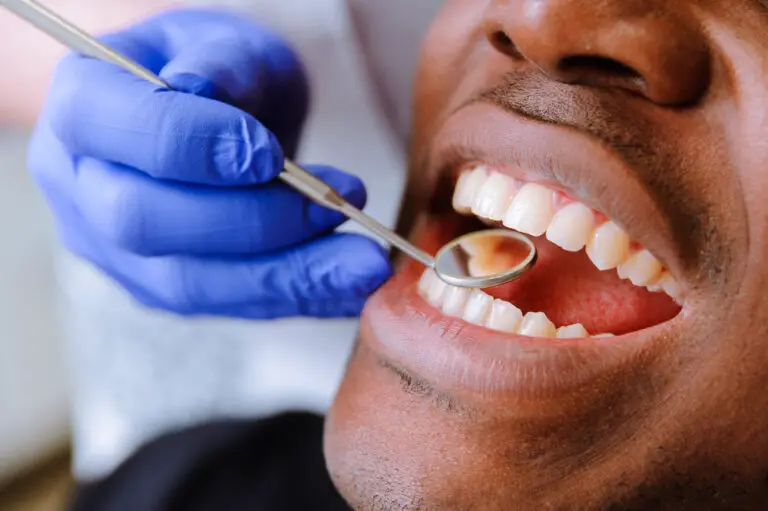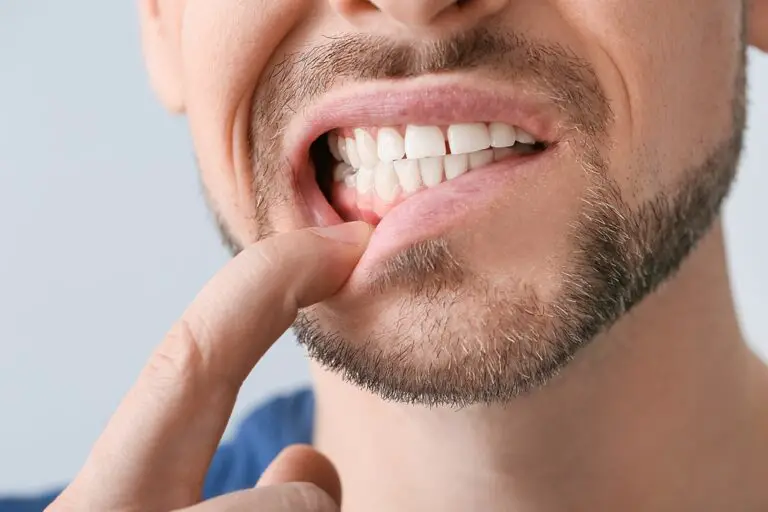Both ibuprofen and Tylenol (acetaminophen) can be effective at relieving dental pain. However, they work in different ways and each has pros and cons to consider.
Ibuprofen is an NSAID (nonsteroidal anti-inflammatory drug) that fights inflammation and pain by blocking cyclooxygenase enzymes. This makes it excellent for reducing swelling and pressure. However, NSAIDs carry more potential side effects than Tylenol, especially at high doses.
Tylenol is not an anti-inflammatory. It works by inhibiting COX enzymes to block pain signals in the brain. Acetaminophen is gentler on the stomach than NSAIDs. However, it does not address swelling or inflammation.
For moderate dental pain like aches after a filling, either ibuprofen or Tylenol may provide sufficient relief. For severe tooth pain from injuries, abscesses, or oral surgery, ibuprofen is often more effective due to its anti-inflammatory properties. But combining the two medications can provide even better pain relief in many cases.
How Ibuprofen and Tylenol Work

Ibuprofen as an NSAID
Ibuprofen belongs to a class of medications called NSAIDs (nonsteroidal anti-inflammatory drugs). NSAIDs reduce pain, fever, and inflammation by blocking enzymes called cyclooxygenase (COX).
There are two main COX enzymes:
- COX-1 is constantly active in the body, protecting the stomach lining and aiding kidney function.
- COX-2 ramps up during injury or illness, triggering inflammation and pain.
Ibuprofen blocks both COX-1 and COX-2. This is why it’s so effective for pain and swelling. However, blocking COX-1 can also lead to stomach ulcers or kidney problems, especially at high doses over long periods.
Tylenol and COX Enzymes
Acetaminophen (Tylenol) blocks COX enzymes too, but more selectively. It inhibits COX-2 to block pain signals without much impact on COX-1.
So Tylenol provides pain relief without reducing inflammation or irritating the digestive tract. But it does not treat the source of pain and swelling like ibuprofen.
Ibuprofen vs. Tylenol for Dental Pain

With toothaches, dental procedures, or oral surgery, inflammation is often the main cause of pain. So ibuprofen can be more effective than Tylenol for:
- Toothaches from damaged nerves or pulp inflammation
- Swollen gums from infections like gingivitis
- Tender gums after deep cleanings
- Pain and swelling after wisdom teeth removal or dental implants
However, Tylenol still eases dental pain by blocking pain signals to the brain. This makes it helpful for:
- Throbbing pain after fillings and other minor procedures
- General mouth discomfort from dentures or braces
- Tooth sensitivity from loss of enamel
For severe dental pain like abscesses, ibuprofen is unlikely to fully reduce inflammation. So dentists may prescribe stronger prescription NSAIDs.
But for mild-moderate pain, ibuprofen typically provides more complete relief by addressing inflammation.
Ibuprofen Dosage for Dental Pain

Ibuprofen tablets come in 200 mg and 400 mg doses over-the-counter. The recommended OTC dosage for adults is:
- 200-400 mg every 4 to 6 hours as needed
- Maximum of 1,200 mg (12 pills) per day
Dentists may recommend 600-800 mg doses for more severe post-procedure swelling and pain. Always follow medical advice regarding appropriate ibuprofen dosage.
Do not exceed 3,200 mg (32 pills) in 24 hours without guidance. High doses can increase the risks of digestive problems or kidney damage.
Tylenol Dosage for Dental Pain

Tylenol also comes in 200 mg and 500 mg dose tablets. The recommended dosages are:
- Adults: 325-650 mg every 4-6 hours as needed
- Seniors: 325 mg every 4-6 hours maximum
- Maximum of 3,000 mg (12 pills) per day
Like ibuprofen, dentists may suggest slightly higher doses after invasive procedures like wisdom teeth removal.
Never take more than 4,000 mg (16 pills) of Tylenol in a day. Acetaminophen overdoses can badly damage the liver.
Ibuprofen vs. Tylenol Side Effects

Both ibuprofen and Tylenol are generally safe when taken as directed. But they can cause side effects, especially at high doses.
Ibuprofen Side Effects
Common side effects of ibuprofen involve the digestive system, including:
- Nausea, vomiting, loss of appetite
- Heartburn
- Stomach pain, ulcers
- Diarrhea or constipation
- Bloody stool
Ibuprofen may also cause:
- Ringing in the ears (tinnitus)
- Kidney problems
- Headaches
- Dizziness
- Rash
These side effects are usually mild but increase at doses over 1,200 mg per day.
Tylenol Side Effects
Acetaminophen is less likely to cause digestive issues. But Tylenol can still have side effects like:
- Nausea, vomiting, loss of appetite
- Liver damage (from high doses)
- Increased blood pressure
- Headache
- Rash
Overall, ibuprofen has a higher risk of side effects. But acetaminophen overdose is far more dangerous.
Combining Ibuprofen and Tylenol

For optimal dental pain relief, some dentists recommend alternating ibuprofen and Tylenol doses every 3 hours.
This provides additive pain relief by blocking COX enzymes and inflammation from multiple angles.
However, do not exceed the maximum daily dose of either drug. Carefully track your total dosage of each.
Dosing Schedule Example
| Time | Medication | Dose |
|---|---|---|
| 8:00 am | Ibuprofen | 400 mg |
| 11:00 am | Tylenol | 500 mg |
| 2:00 pm | Ibuprofen | 400 mg |
| 5:00 pm | Tylenol | 500 mg |
| 8:00 pm | Ibuprofen | 400 mg |
| 11:00 pm | Tylenol | 500 mg |
This allows you to take a moderate dose of each medication every 3 hours during the day. Discuss any combination schedule with your dentist first.
When to See a Dentist

For tooth pain that over-the-counter medication cannot manage, see a dentist promptly. Significant dental pain can indicate:
- Dental abscess
- Infection spreading to the bone
- Nerve damage
- Wisdom tooth impaction
- Broken or cracked tooth
Left untreated, some dental issues may lead to worsening infection, tooth loss, or other dental emergencies. Getting prompt professional dental treatment is crucial.
Conclusion
For moderate dental discomfort, both ibuprofen and Tylenol can help. But ibuprofen is often better suited for severe toothaches and oral surgery pain thanks to its anti-inflammatory properties.
Alternating both medications can provide optimal pain relief in many cases. However, do not exceed safe dosages of either drug. See a dentist right away if OTC pain relievers do not provide enough relief.
Frequently Asked Questions
Which is better for wisdom tooth pain?
Ibuprofen is generally more effective for wisdom tooth pain. Removing wisdom teeth is an invasive surgical procedure that typically causes significant swelling. Ibuprofen is better able to control post-op inflammation.
Is Tylenol or ibuprofen better for tooth infection?
Ibuprofen is typically preferable for tooth infections, especially those causing abscesses. Its ability to reduce swelling and inflammation helps address the source of the problem.
Is ibuprofen or Tylenol better for toothache?
For straightforward toothaches from damage or cavities, either ibuprofen or Tylenol may provide sufficient relief. But ibuprofen is often better for throbbing, constant tooth pain as it reduces pressure from inflammation.
Can I take Tylenol and ibuprofen together for tooth pain?
Yes, you can take Tylenol and ibuprofen together as long as you do not exceed the maximum daily dose of either medication. Taking them alternately every few hours provides more complete pain relief. Discuss dosing with your dentist.
Should I take Tylenol or ibuprofen before dental work?
Pre-dosing with ibuprofen before dental work can help reduce post-procedure pain and inflammation. Acetaminophen may help as well but will not control swelling. Some dentists recommend taking both an hour before appointments.






